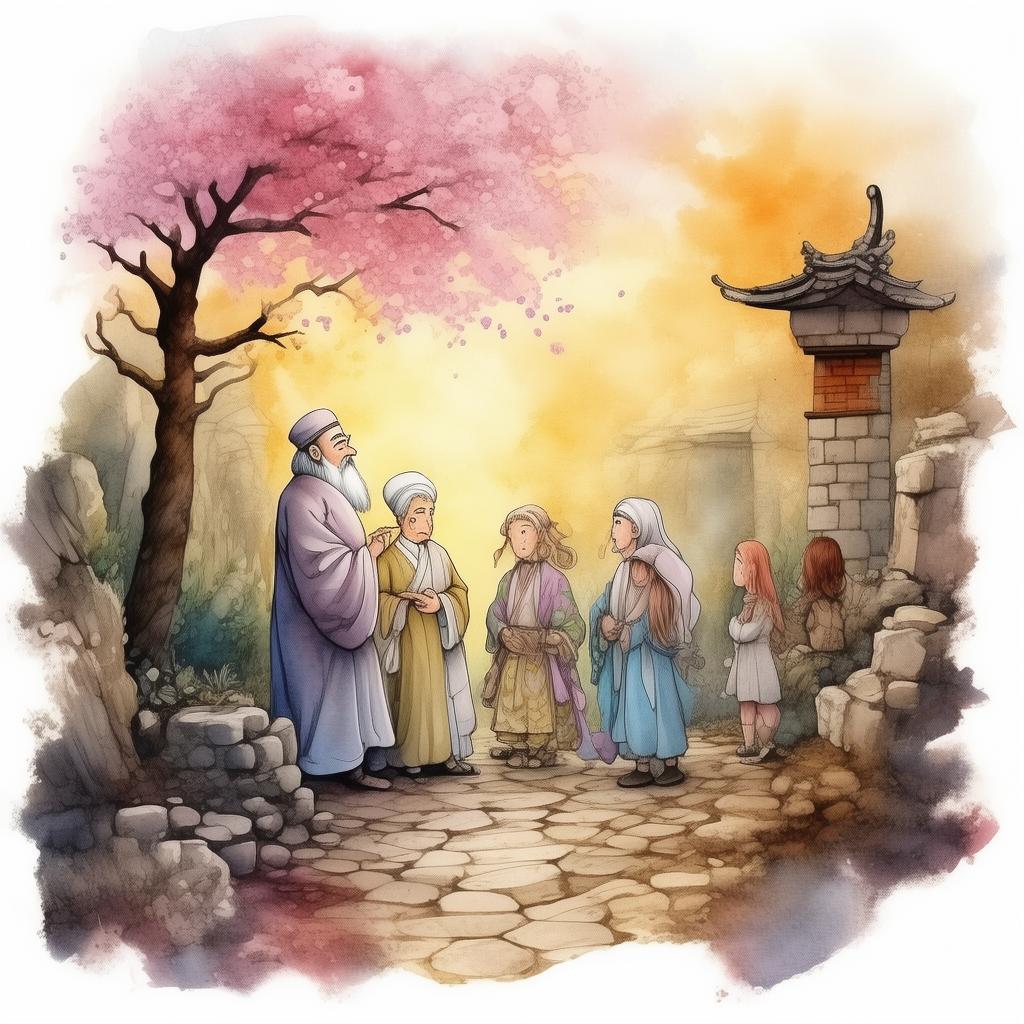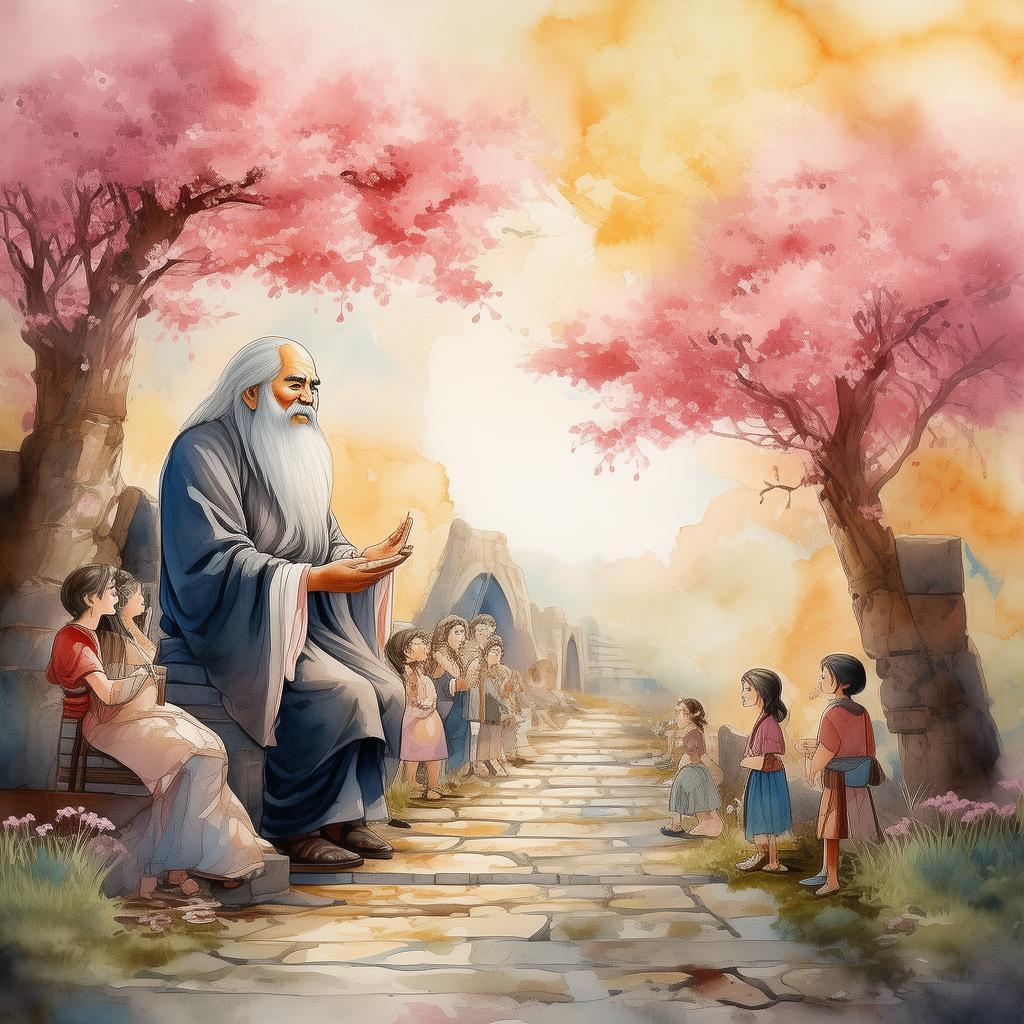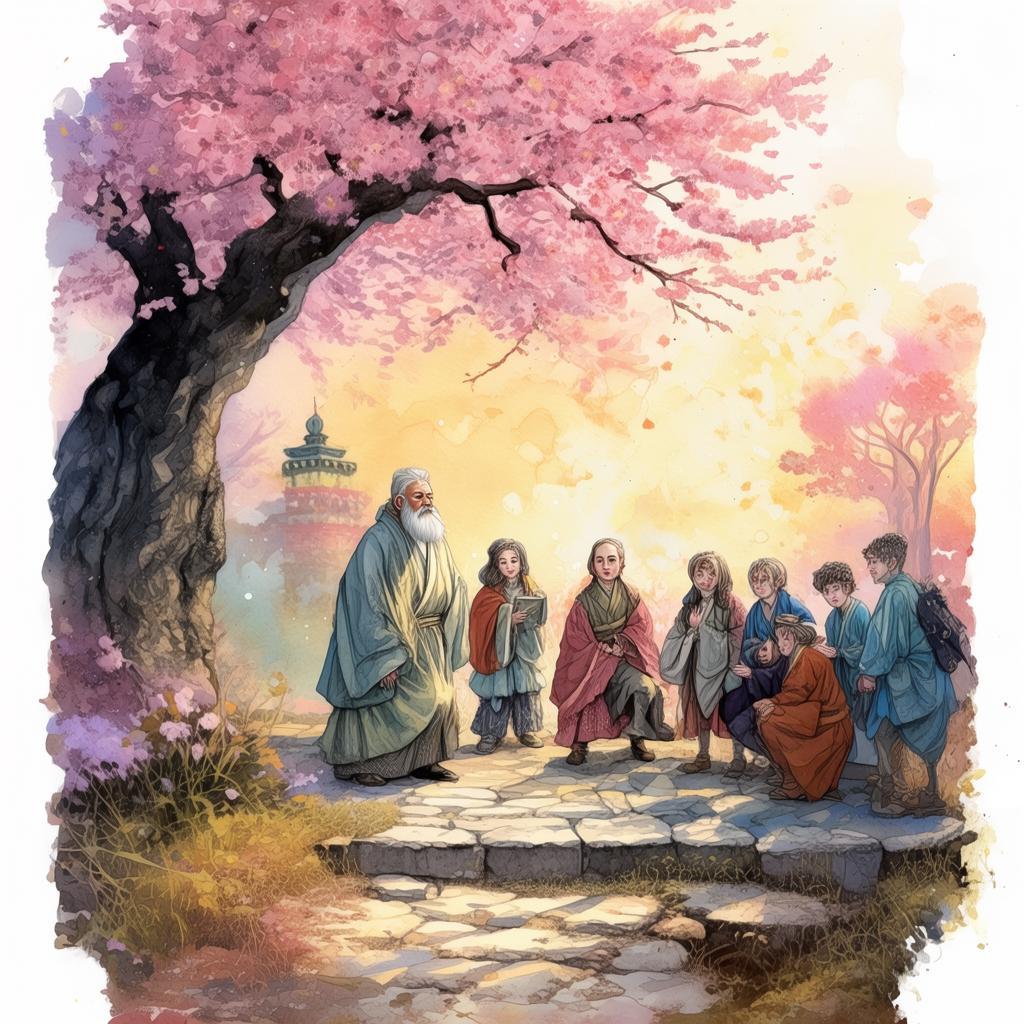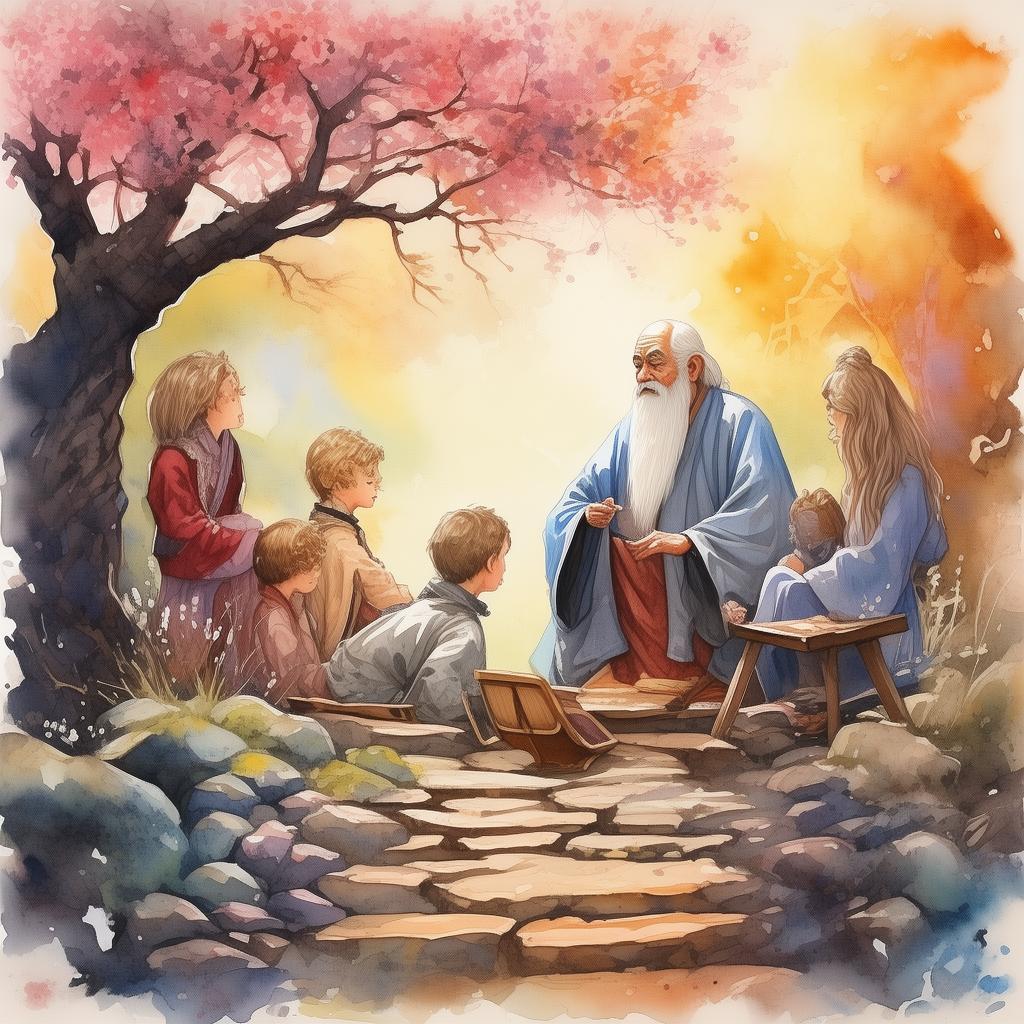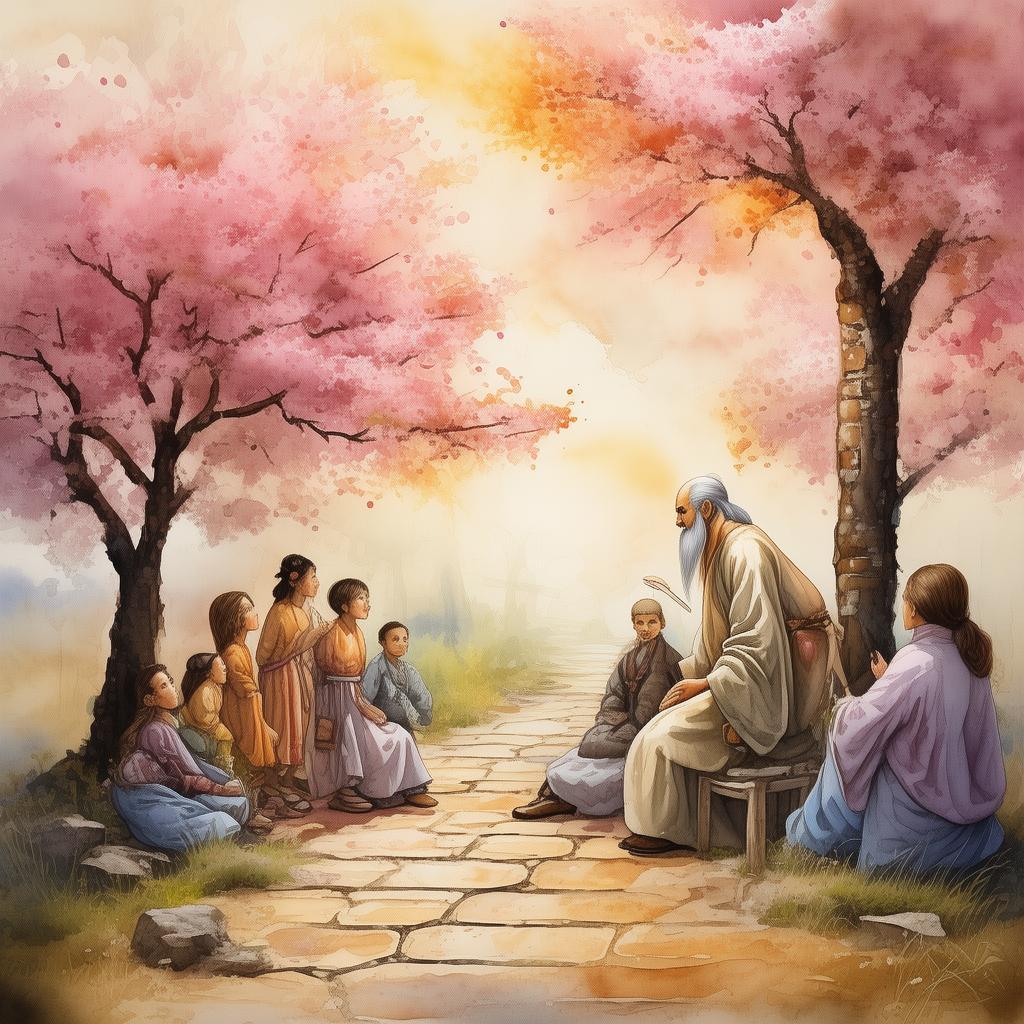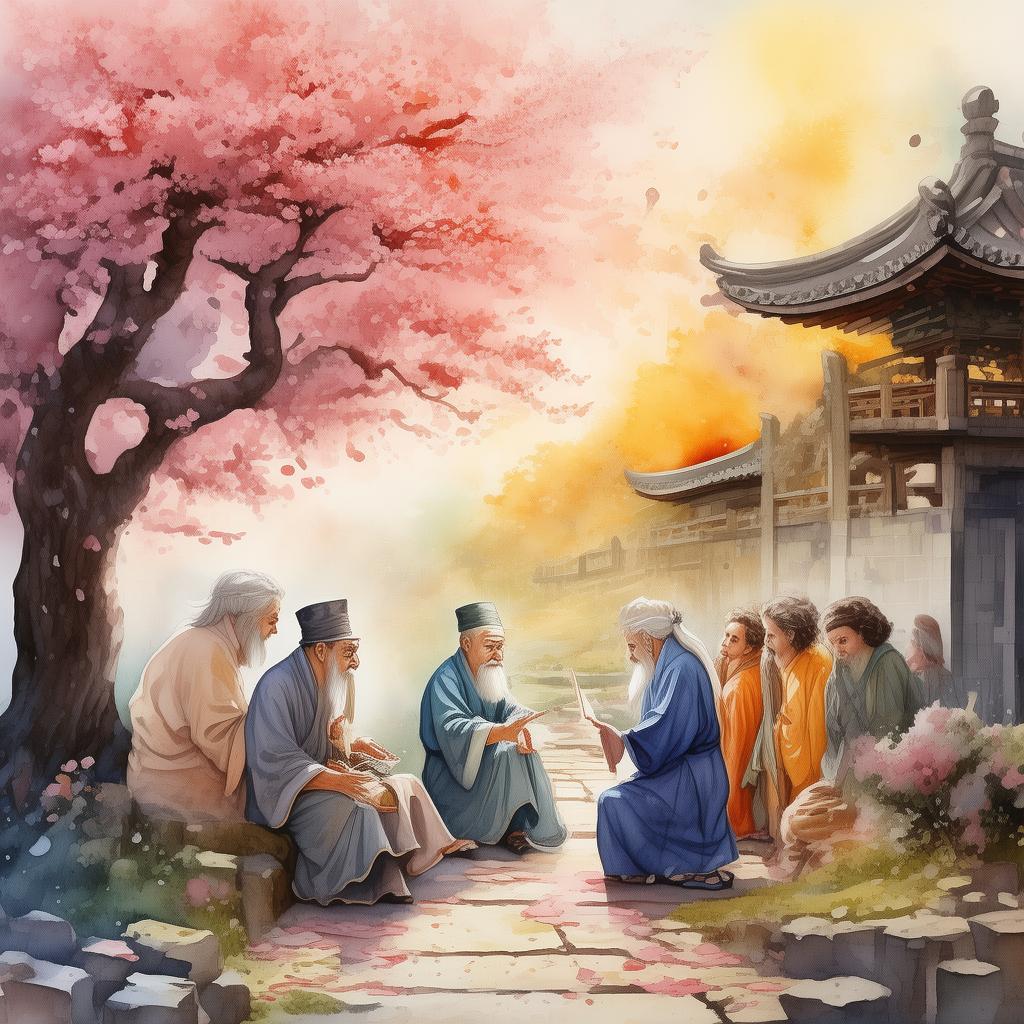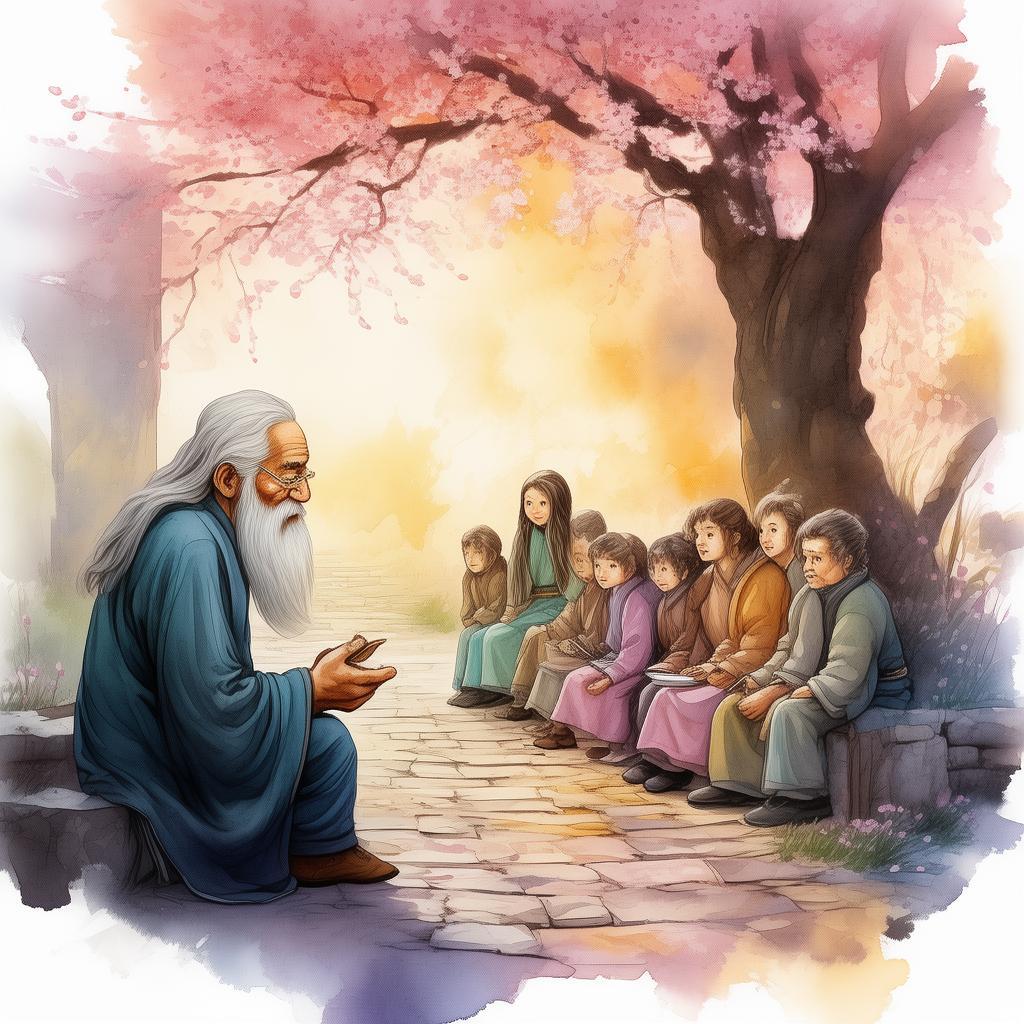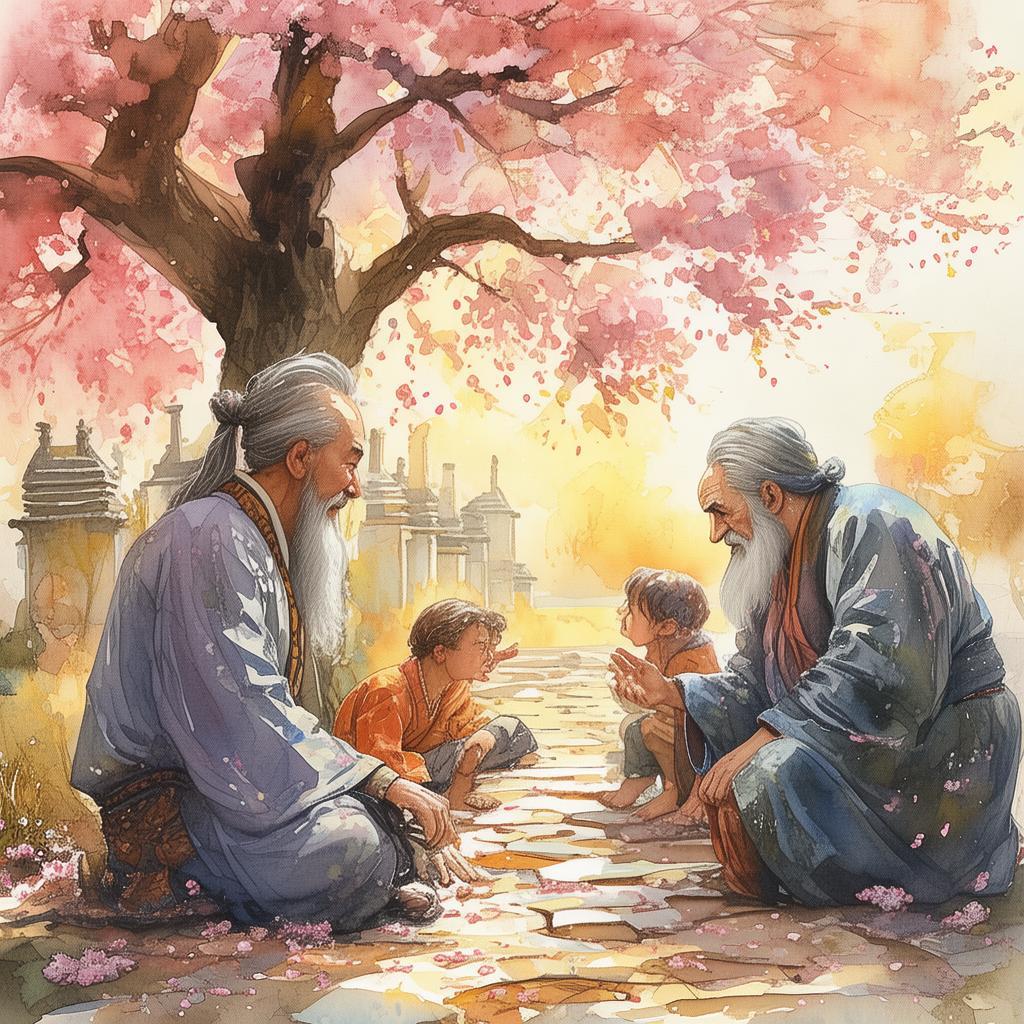Quantum Leap of Loyalty: The Confucian Code of Honor
In the bustling city of Luoyang, during the Warring States period, Confucius found himself in a quandary that would test his teachings of loyalty and honor. The year was 479 BCE, and the great philosopher was known for his unwavering commitment to the principles of filial piety and loyalty. But this time, the universe had thrown him a curveball, and the stakes were higher than ever.
Confucius had been traveling through time using his ancient scroll of quantum chronicles, a mystical artifact that allowed him to leap through the fabric of time and space. On this particular journey, he found himself in the court of Duke Xian of Qi, a ruler known for his cunning and ruthless nature. The Duke had summoned Confucius to advise him on the best way to secure his kingdom against a looming threat from neighboring states.
As Confucius pondered the Duke's request, he was interrupted by a sudden tremor that seemed to shake the very ground beneath his feet. The tremor was not natural; it was a quantum anomaly, a disturbance in the fabric of time itself. Confucius, ever the scholar, recognized the signs of a temporal rift, a crack in the timeline that could lead to a paradox or a distortion of reality.
The Duke, perceiving the tremor, grew suspicious and demanded to know what was causing it. Confucius, knowing that revealing the truth could cost him his life, decided to act quickly. He proposed a ruse to the Duke, suggesting that he could harness the quantum anomaly to strengthen the kingdom's defenses.
The Duke, intrigued by the prospect of such advanced technology, agreed to the plan. Confucius then set about creating a device that would harness the quantum energy to create a protective shield around the kingdom. However, as he worked, he discovered that the device was unstable, and its use could lead to unforeseen consequences.
While Confucius struggled with the moral implications of his actions, he was confronted by a group of loyalists who had learned of his plan and were determined to stop him. They believed that using the quantum device would betray the very principles of loyalty and honor that Confucius had dedicated his life to teaching.
The loyalists were led by a young warrior named Jing, whose own loyalty was tested by the gravity of the situation. Jing had been a student of Confucius and had internalized his teachings. Now, he found himself at odds with the man he once revered.
As the conflict escalated, Confucius was forced to make a difficult decision. Should he continue with his plan and risk the stability of the kingdom, or should he abandon the project and honor his principles, potentially leading to the kingdom's downfall?
The climax of the story came when the quantum device was activated. The shield was weak and unstable, and the kingdom was at the mercy of the quantum anomaly. Confucius, with his heart heavy, realized that he had made a mistake. The device was not meant to be used by mere mortals; it was a force beyond their control.
In a moment of clarity, Confucius chose loyalty over power. He deactivated the device, allowing the anomaly to consume the kingdom. As the world around him shattered, Confucius found himself in a quantum void, the fabric of reality torn apart.
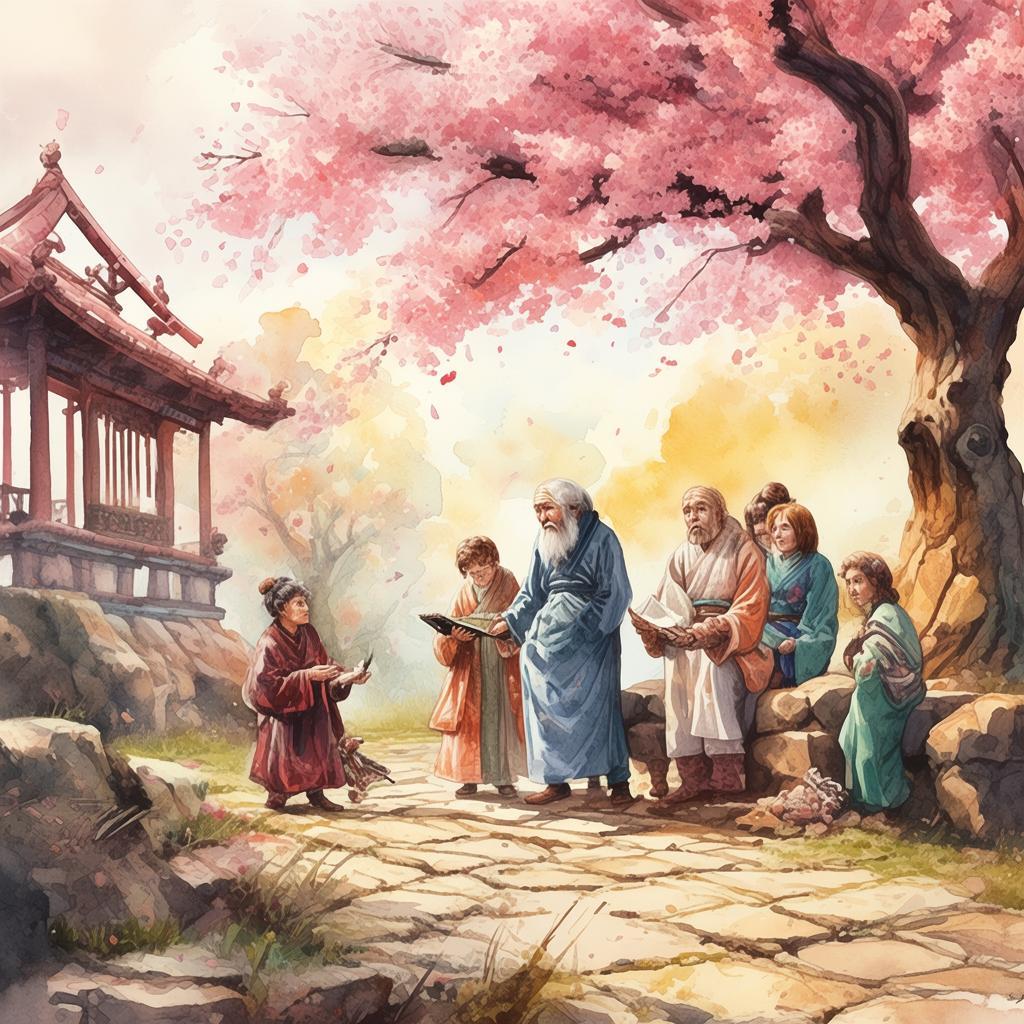
Jing, who had been present during the crisis, witnessed Confucius's sacrifice. He understood the depth of the philosopher's commitment to his principles. With a newfound respect for Confucius, Jing vowed to spread his teachings and ensure that the spirit of loyalty and honor would never be forgotten.
Confucius, now trapped in the quantum void, found himself face-to-face with his own mortality. He realized that his journey through time had not only shaped the future of ancient China but had also deepened his understanding of the true meaning of loyalty and honor.
In the end, Confucius was able to return to his own time, his soul cleansed by the experience. He emerged from the quantum chronicles a wiser man, his teachings now imbued with a deeper understanding of the human condition.
The story of Confucius's quantum leap of loyalty became a legend, a testament to the power of principle over power. It spread far and wide, inspiring generations to come to uphold the values of loyalty and honor in the face of even the most daunting challenges.
✨ Original Statement ✨
All articles published on this website (including but not limited to text, images, videos, and other content) are original or authorized for reposting and are protected by relevant laws. Without the explicit written permission of this website, no individual or organization may copy, modify, repost, or use the content for commercial purposes.
If you need to quote or cooperate, please contact this site for authorization. We reserve the right to pursue legal responsibility for any unauthorized use.
Hereby declared.
